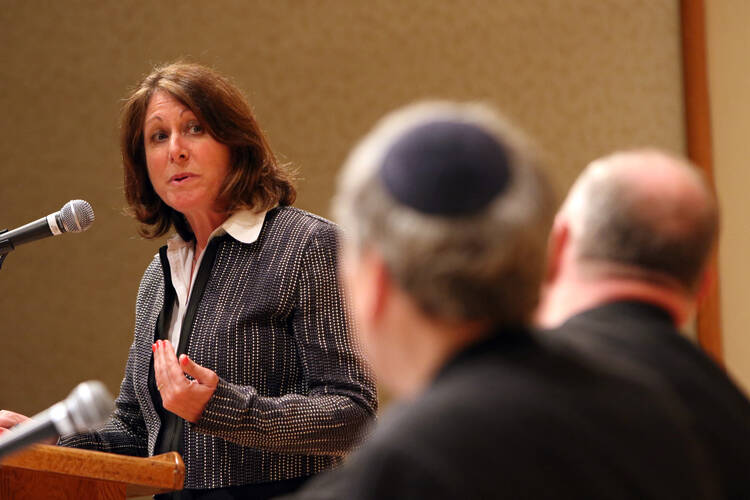On Thursday, Dec. 8, Dean Baquet, the executive editor of The New York Times, lamented the dearth of good religion journalism in an NPR interview with Terry Gross. “We have a fabulous religion writer [at The New York Times], but she’s all alone,” said Mr. Baquet. “We don’t get the role of religion in people’s lives. And I think we can do much, much better.”
On the very same day, that “fabulous religion writer” Mr. Baquet referred to, Laurie Goodstein, echoed his concerns at the Religious Literacy in Journalism Symposium at Harvard Divinity School. The symposium was part of a series spearheaded by Diane Moore of Harvard Divinity School, intended to improve religious literacy across many professions. (Full disclosure: as a student at H.D.S. I worked as a teaching assistant for the Religious Literacy Project, which Professor Moore directs.) Forthcoming symposia will address the need to further religious literacy in humanitarian action, business and government.
“I’m glad that we’re all here because we now have urgent work to do,” Ms. Goodstein said in her keynote speech. “Religious literacy has probably never been more important, or more of a challenge. The grounds are shaking, the fissures are cracking open all around us, and the faultlines all seem to intersect. Race, class, gender and underneath it all like molten lava: religion.”
The sense of urgency surrounding religion journalism has emerged from the rise of fake news and the ascendance of Donald J. Trump, who has pioneered a “post-truth politics” that places a premium on narrative over fact. Perhaps more than ever, people are beginning to care less about the factual truth of the news they consume, and more about whether it speaks to their experience of the world. All journalists in attendance appeared to agree: journalism has to change not only in order to better challenge false conceptions about religion, climate change and immigrants—to name a few topics—but also to simply survive.
How can journalists keep their readers without pandering to them, as viral fake news sites do? While the speakers at Harvard found no simple answer to that question, Ms. Goodstein recommended that journalists start by tackling the misconceptions about religion. “We don’t have any solution—yet—to fake news,” she told her audience, “but we can do something about the shoddy and misguided reporting on religion that is all too commonplace.”
Ms. Goodstein drew attention to several misunderstandings of Catholicism in highlighting the need for better religious literacy. “[Many] journalists don't know the difference between an archbishop and a cardinal; they think [Catholics] worship Mary; they conflate homosexuality, chastity and pedophilia; they assume priests and nuns all live in monasteries; they think the pope controls what every bishop and priest says and does; and when some bishop somewhere pops off somewhere on some topic it gets reported as if the Vatican has spoken.”
Muslims are also frequently misrepresented in the media, Ms. Goodstein noted. In the current U.S. political climate, Muslims are far more likely than Catholics to experience fallout from this misinformation in violent and life-threatening ways. Muslims are repeatedly attacked by people who take the actions of a small number of Muslims who commit terrorist attacks to represent all 1.6 billion Muslims living in the United States and abroad. As a recent report by Georgetown University’s The Bridge Initiative points out, Catholics are one of the groups whose religious literacy about Muslims is in dire need of improvement.
Better religious education is clearly needed for people of all faiths and professions. One way forward, offered by Stephen Prothero of Boston University, is increased collaboration between journalists and academics. “This is an important moment for us to work together,” he said. “Not only to understand religion and the religions, but also to defend our institutional freedom, on which our two professions depend.”









The situation arises because mainstream media assumes that religion ought not play a role in the public square, and so does not bother to inform itself, much less its comsumers, of religion's normative or descriptive perspectives. Personally, I like journalism that informs, not merely reinforces prejudices, no matter left or right, but I have seen story after story presented in the same trappings of enlightened progressive versus unenlightened reactionary. This has lead to many false news stories, like that revelation that Trump talked dirty in a private conversation a decade ago (maybe true, but is it news?), and the report that Hispanic voters were turning out at unprecidented levels to vote against Trump (totally untrue, and probably an attempt at self-fulfilling prophecy to influence the turnout). The mainstream media should begin with cleaning their own house before complaining about "fake" news.